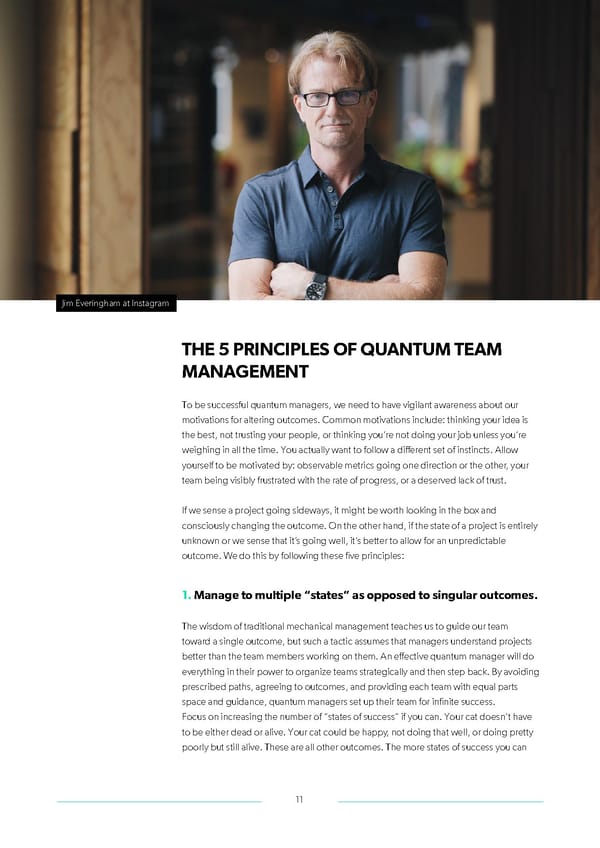ESSENTIALS MANAGEMENT Jim Everingham at Instagram THE 5 PRINCIPLES OF QUANTUM TEAM MANAGEMENT To be successful quantum managers, we need to have vigilant awareness about our motivations for altering outcomes. Common motivations include: thinking your idea is the best, not trusting your people, or thinking you’re not doing your job unless you’re weighing in all the time. You actually want to follow a different set of instincts. Allow yourself to be motivated by: observable metrics going one direction or the other, your team being visibly frustrated with the rate of progress, or a deserved lack of trust. If we sense a project going sideways, it might be worth looking in the box and consciously changing the outcome. On the other hand, if the state of a project is entirely unknown or we sense that it’s going well, it’s better to allow for an unpredictable outcome. We do this by following these ifve principles: 1. Manage to multiple “states” as opposed to singular outcomes. The wisdom of traditional mechanical management teaches us to guide our team toward a single outcome, but such a tactic assumes that managers understand projects better than the team members working on them. An effective quantum manager will do everything in their power to organize teams strategically and then step back. By avoiding prescribed paths, agreeing to outcomes, and providing each team with equal parts space and guidance, quantum managers set up their team for inifnite success. Focus on increasing the number of “states of success” if you can. Your cat doesn’t have to be either dead or alive. Your cat could be happy, not doing that well, or doing pretty poorly but still alive. These are all other outcomes. The more states of success you can 11
 Essentials Management First Round Capital Page 10 Page 12
Essentials Management First Round Capital Page 10 Page 12